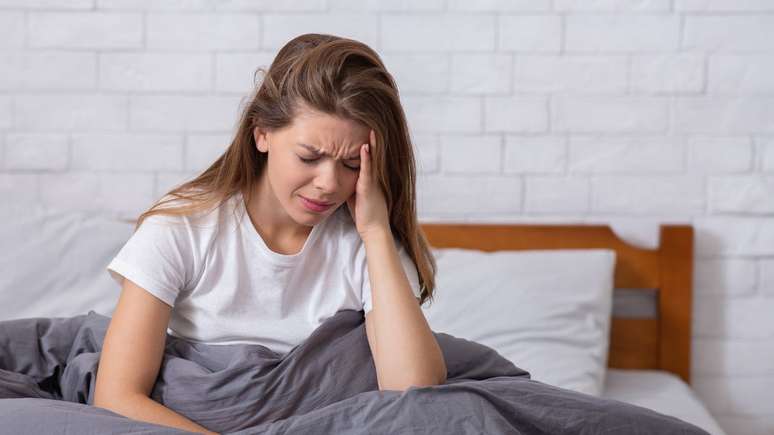Discover effective strategies to combat insomnia and improve the quality of your sleep. Learn about sleep hygiene, nutrition, exercise and relaxation techniques.
Insomnia is a sleep disorder that affects millions of people worldwide, negatively impacting their physical and mental health. This article explores effective strategies for combating insomnia, drawing on practical guidelines and expert recommendations.
Understanding Insomnia
Insomnia is characterized by difficulty falling or staying asleep, resulting in unrefreshing sleep and daytime tiredness. Causes can range from stress and anxiety to underlying medical conditions such as sleep apnea. According to the Sleep Foundation, between 10% and 15% of people suffer from chronic insomnia, which persists for several months.
Symptoms of insomnia include difficulty falling asleep, waking up frequently during the night, waking up too early, and feeling tired upon awakening. In addition, insomnia can lead to concentration problems, irritability, and poor performance at work or school.
Identifying the underlying cause of insomnia is essential to determining the appropriate treatment. In many cases, changes in lifestyle and sleep routine may be enough to improve the quality of sleep.
Strategies to improve sleep quality
Sleep Hygiene
A good thing sleep hygiene It is essential to combat insomnia. This involves creating a sleep-friendly environment and adopting healthy habits. Maintaining a regular bedtime and wake-up time, even on weekends, helps regulate the body’s circadian rhythm.
Your sleeping environment should be comfortable and free of distractions. Keep your room dark, quiet, and at a comfortable temperature. Investing in a good mattress and pillows can make a significant difference in the quality of your sleep.
It is essential to avoid using electronic devices before bed, as the blue light emitted by these devices can interfere with the production of melatonin, the sleep hormone. Instead, opt for relaxing activities, such as reading a book or listening to relaxing music.
Food and hydration
Food plays a crucial role in the quality of your sleep. Avoiding heavy, spicy, or acidic foods before bed can prevent digestive disorders that disrupt your sleep. Instead, opt for a light snack, such as fruit or cookies.
It is also important to avoid caffeine and alcohol in the hours before bed, as these substances can interfere with your ability to fall asleep and stay asleep. Relaxing herbal teas, such as chamomile or lemon balm, can be a good alternative to help you relax before bed.
Staying hydrated throughout the day is important, but avoid consuming large amounts of fluids before bed to minimize nighttime bathroom breaks.
Physical exercises
Regular practice of physical exercises can significantly improve the quality of sleep. Physical activities help regulate biological rhythms and promote deeper, more restful sleep. However, it is important to avoid intense physical activity in the hours before bedtime, as it can have a stimulating effect.
Exercises such as walking, yoga or stretching are ideal to do at the end of the day, as they help relax the body and mind, preparing them for sleep.
Additionally, exposure to natural light during the day, especially in the morning, can help regulate your sleep-wake cycle, promoting healthier sleep at night.
Relaxation techniques
Meditation and awareness
The practice of meditation AND awareness It can be extremely helpful for people who suffer from insomnia. These techniques help reduce stress and anxiety, creating a more sleep-friendly state of mind.
Taking a few minutes before bed to meditate or practice deep breathing exercises can help calm your mind and prepare your body for rest. There are apps and online resources that offer guided meditations and relaxation exercises.
Additionally, regular mindfulness practice can help increase awareness of sleep patterns and identify factors that may be contributing to insomnia.
Alternative therapies
Consider alternative therapies can be an effective option for improving sleep quality. Acupuncture, for example, is a traditional practice that can help balance the body’s energy and relieve symptoms of insomnia.
Other therapies, such as aromatherapy and massage, can also be helpful. Essential oils, such as lavender, are known for their relaxing properties and can be used to create a calming environment in the bedroom.
It is important to remember that each person is unique and may need to try different approaches to find what works best. Consulting with a trained healthcare professional can help develop a personalized treatment plan.
Questions and Answers
What are the main symptoms of insomnia?
The main symptoms of insomnia include difficulty falling asleep, frequent awakenings during the night, waking up too early, and feeling tired upon awakening.
How can food affect sleep?
Heavy, spicy, or acidic foods can cause digestive upset and disrupt sleep. Avoiding caffeine and alcohol before bed is also important to improve sleep quality.
What are some effective relaxation techniques for insomnia?
Meditation, mindfulness, and alternative therapies, such as acupuncture and aromatherapy, are effective techniques for reducing stress and anxiety, promoting more restful sleep.
Source: Terra
Ben Stock is a lifestyle journalist and author at Gossipify. He writes about topics such as health, wellness, travel, food and home decor. He provides practical advice and inspiration to improve well-being, keeps readers up to date with latest lifestyle news and trends, known for his engaging writing style, in-depth analysis and unique perspectives.









